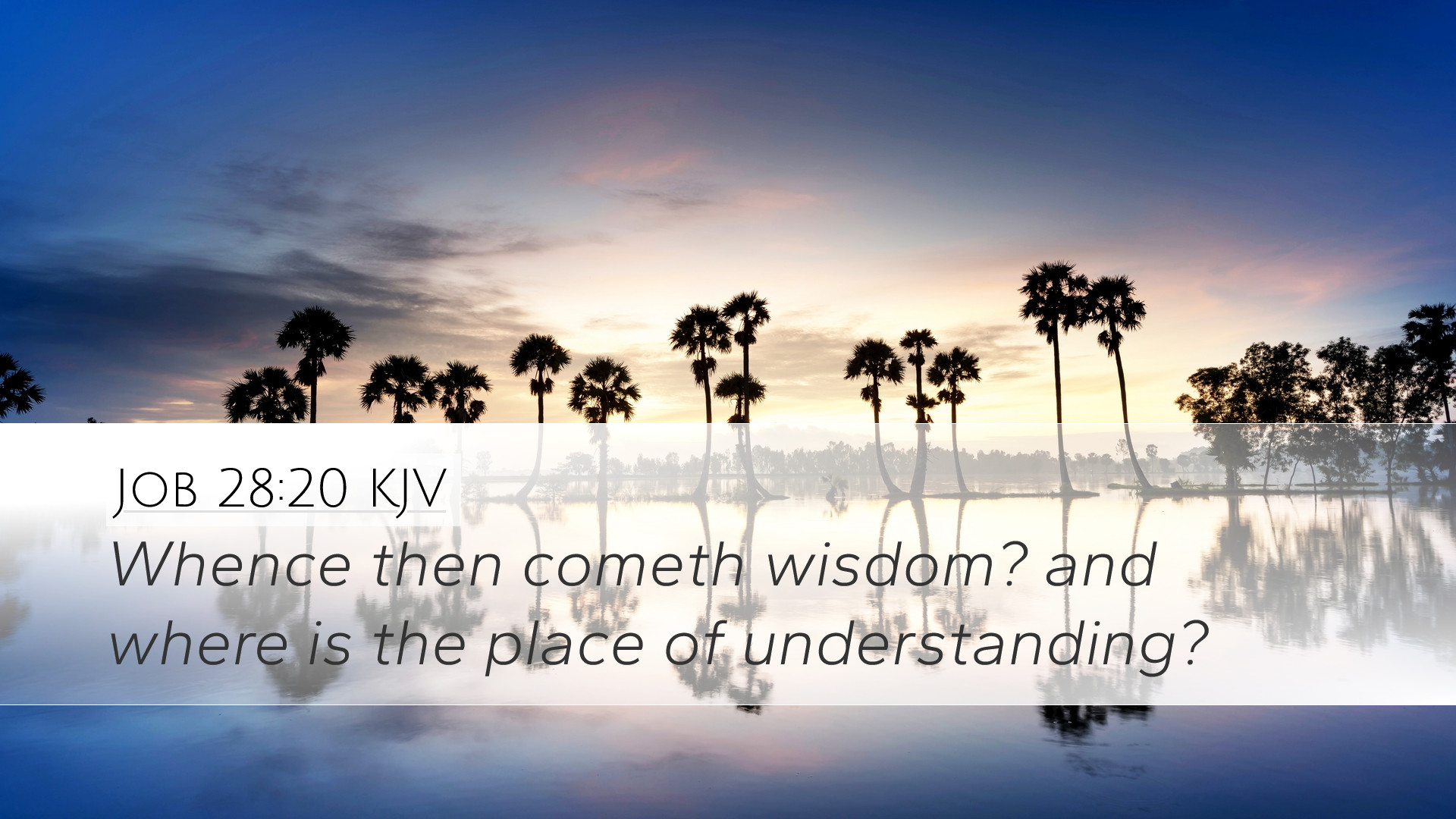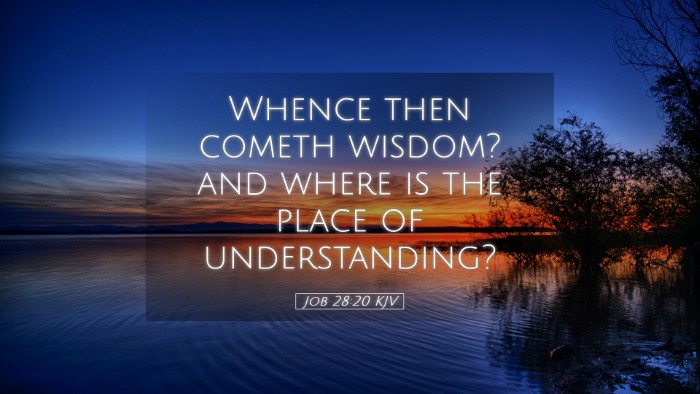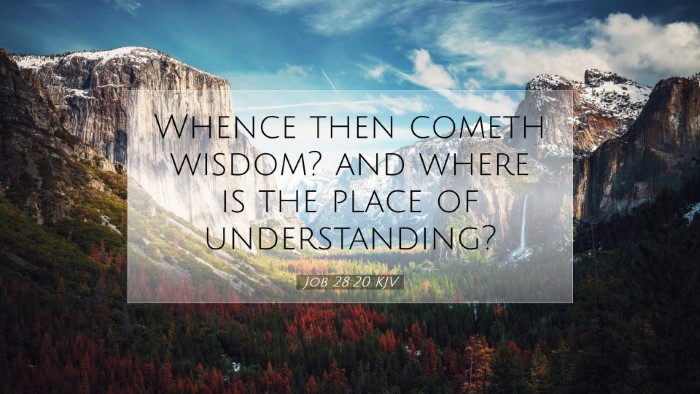Old Testament
Genesis Exodus Leviticus Numbers Deuteronomy Joshua Judges Ruth 1 Samuel 2 Samuel 1 Kings 2 Kings 1 Chronicles 2 Chronicles Ezra Nehemiah Esther Job Psalms Proverbs Ecclesiastes Song of Solomon Isaiah Jeremiah Lamentations Ezekiel Daniel Hosea Joel Amos Obadiah Jonah Micah Nahum Habakkuk Zephaniah Haggai Zechariah MalachiJob 28:20
Job 28:20 KJV
Whence then cometh wisdom? and where is the place of understanding?
Job 28:20 Bible Commentary
Commentary on Job 28:20
Verse Text: "Whence then cometh wisdom? And where is the place of understanding?" (Job 28:20, KJV)
Introduction
The verse from Job 28:20 poses profound questions regarding the origin of wisdom and understanding. This inquiry arises in a context where Job, amidst his suffering, contemplates the pursuit of wisdom in relation to human experience and the cosmos. The responses to these questions draw on insights from various public domain commentaries.
Contextual Background
Job's discourse on wisdom comes during a passage that highlights the inaccessibility of wisdom to mankind. Earlier verses detail how precious metals and minerals are sought after, yet wisdom remains elusive. This sets up a stark contrast between material wealth and spiritual understanding.
Matthew Henry’s Insights
Matthew Henry emphasizes the metaphysical nature of wisdom. He interprets the questions as a reflection of the human condition—one that grapples with the foundational queries of existence. According to Henry, wisdom cannot be mined or discovered like jewels; rather, it is a divine gift, beyond human reach. He notes:
“Wisdom cannot be found in the earth; it is beyond the grasp of mankind's endeavor and riches.”
Henry also highlights that the searching for wisdom often leads to an acknowledgment of God’s sovereignty and the mysteries of the divine order.
Albert Barnes’ Perspective
Albert Barnes, in his commentary, delves into the theological implications of the questions posed in Job 28:20. He underscores that true wisdom is associated with a deep understanding of God’s ways. Barnes suggests that the inquiry reveals the limitations of human knowledge and the necessity of divine revelation:
“The very questions asked by Job intimate that wisdom is not for man merely to discover through intellect; it is derived from God.”
Barnes further explains that while humans may pursue various forms of knowledge, it is only through a relationship with the Creator that true wisdom and understanding can be grasped. Thus, the verse is a call to humility and reliance on God.
Adam Clarke’s Commentary
Adam Clarke adds a depth of literary analysis and Hebrew language insights to the discussion. He indicates that the term "wisdom" (חָכְמָה, chokmah) encompasses not merely intellect but also practical skill and moral insight. Clarke posits:
“To know where wisdom is located is to engage directly with the source of moral and ethical living.”
Clarke also notes that the rhetorical nature of these questions invites both introspection and a wider contemplation of humanity's place in the cosmos.
The Nature of Wisdom in the Scriptures
Across biblical literature, wisdom is portrayed not as a static possession, but as dynamic and relational. It is often equated with the fear of the Lord:
- Proverbs 1:7: “The fear of the Lord is the beginning of knowledge.”
- Proverbs 9:10: “The fear of the Lord is the beginning of wisdom.”
This association invites readers to consider that understanding is not simply a matter of intellectual exercise but is rooted in reverence for God.
Implications for Pastors and Theologians
The reflections on Job 28:20 draw attention to the essential role of wisdom in pastoral ministry and theological reflection. Here are some key implications:
- Wisdom as Relational: The pursuit of wisdom should direct believers towards a deeper relationship with God rather than mere academic achievement.
- Humility in Teaching: Pastors and theologians are reminded of the limitations of human understanding and the need for divine guidance.
- Integration of Knowledge: Wisdom is not solely found in intellectual engagement but must also inform practical living and moral choices.
Conclusion
Job 28:20 serves as a profound reminder of the quest for wisdom, which must ultimately lead individuals to acknowledge and seek God. The insights from Matthew Henry, Albert Barnes, and Adam Clarke collectively illuminate that wisdom is not about acquisition but about relationship, humility, and reverence for the Creator. As readers engage with these timeless truths, they are invited to reflect on their own quest for wisdom amidst the complexities of life.


